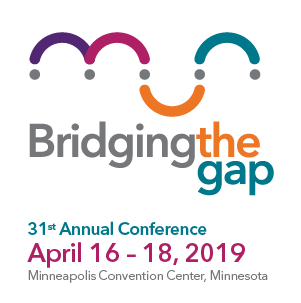Clinical Competence in a Globally Mobile World—An Evidence-based Approach to Reducing Medical Disparities in Minority Patient Populations
90-minute Workshops
Day 2
Session Code: S3-IWhen: April 17, 2019
Location/Room: M 100 I
Level: Advanced
Track: Healthcare
Presenters: Lorraine Griffin-Johnson, CentraCare Health System | David Hunt, BCT Partners, LLC
Prerequisite: Participants should be generally familiar with research on medical disparities in minority populations and the AHA’s #123forEquity program to reduce racial and ethnic disparities in healthcare.
Description
Join us to learn how Critical Measures is using an approach that has the potential to change the way providers practice medicine. In the past, physicians were taught to make diagnoses based on a “review of systems” model (seven cardinal systems). While this approach worked well in the past, globalization and patient diversity make it less reliable today. Adopting a more “patient-centered” approach allows physicians to explore who the patient is (demographically, culturally, spiritually, etc.), where they come from (national origin), and where they’ve traveled recently. Leading national organizations such as the American Hospital Association have introduced programs to reduce medical disparities in minority patient populations by encouraging hospitals to collect patient race, ethnicity and language data, and tying that data to patient outcomes. To date, this approach has produced little progress—largely because it has not focused on changing healthcare providers’ clinical behavior. As an alternative to this approach, Critical Measures has been working with leading clinicians to create a Provider Cultural and Linguistic Competence Assessment. The goal of the assessment is not to measure providers’ “cultural competence” but rather to diagnostically assess providers’ clinical competence in a globally mobile world. Rather than examine providers’ beliefs or attitudes toward medical disparities, our assessment focuses on providers’ actual practice behaviors when treating culturally and linguistically diverse patients and compares those practice behaviors against national best practices from The Joint Commission, the CDC and others. Non-traditional patients represent some of healthcare’s fastest-growing patient populations whose medical needs are rarely well understood. National research suggests that these patients are more likely to experience disparities in both patient outcomes and patient satisfaction—these are patient populations around which many providers have had little formal, clinical training. In fact, fully 60% of the current national cohort of practicing physicians have never had any formal training on cross-cultural medical care. Within the past eight years, Critical Measures has had the opportunity to work with leading hospital systems across the U.S. to administer our Provider Cultural and Linguistic Competence Assessment to thousands of providers (physicians, RN’s, LPN’s, APP’s and others). As a result, we have been able to create a national database that can be used to compare hospitals and practitioners and generate baselines and report cards. During this presentation, we will share some of the key findings from our national database. We will describe the minority patient populations that medical providers believe themselves best and least able to treat effectively and compare providers’ performance against national best practices in clinical care as well as against the latest legal and regulatory guidelines. We will also describe our efforts to create a statistical rating system for assessing providers’ performance in treating various minority patient populations. In particular, we will describe a major new provider assessment initiative with CentraCare, one of our long-time hospital system clients. CentraCare is an interesting case study because they have had a substantial influx of Somali Muslim patients—many of whom speak little to no English. CentraCare providers first took our Provider Cultural and Linguistic Competence Assessment several years ago to create a baseline. In January 2019, CentraCare began reassessing providers to determine whether progress has occurred and if so, how much. Having completed the assessment, providers receive an individualized provider feedback report that delivers national best practices tips and resources for working more effectively with non-traditional patients, along with comparative local and national data comparing their practice behaviors against local and national peers in the same medical sub-specialty. CentraCare expects that providers will take the data they receive and use it to improve some aspect of their medical practice for treating non-traditional patients.
Learning Objectives
- Understand three critical diversity-related issues in patient care
- Understand why previous national approaches to reducing medical disparities in minority populations have failed
- Understand why assessing providers’ clinical competence in treating minority patients is likely to succeed
Sponsor



